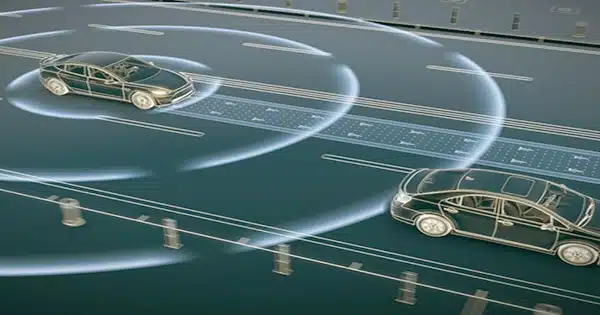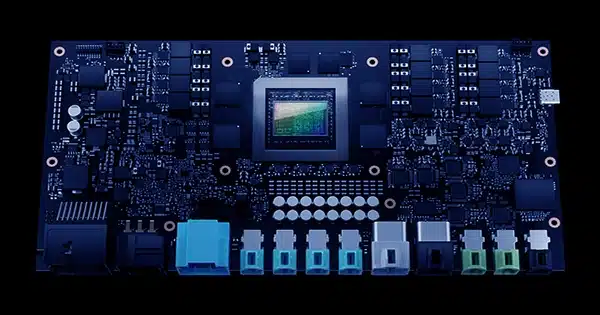According to an article published in Communications Engineering, an international team of scientists has built an ultra-high-speed signal processor capable of analyzing 400,000 real-time video images at the same time.
Professor David Moss of Swinburne University of Technology led the team in developing a processor that operates at a record 17 Terabits/s (trillion bits per second), more than 10,000 times faster than normal electrical processors that operate in Gigabytes.
The technology has significant implications for the safety and efficiency of self-driving automobiles, medical imaging, and the discovery of habitable planets outside our solar system.
“This is a game changer,” Moss explains. “These are portable, ultra-precise optical rulers that could be used for everything from handheld breath scanners to detecting small movements of objects in space or finding Earth-like exoplanets.”

The processor’s efficiency and speed will significantly affect artificial intelligence (AI), machine learning, and robotic vision. The ability to handle massive volumes of data in real-time will result in more intelligent, self-sufficient robotic systems that can operate effectively in real-world conditions.
In astronomy, for example, analyzing massive amounts of cosmic data at unprecedented rates will enable ground-breaking discoveries. This method will also speed up the operations of medical imaging and driverless vehicles.
“All real-time analysis and decision-making requires ultrafast analysis of video images for everything from autonomous driving to artificial intelligence to detect and analyze objects.”
“The secret to its remarkable performance lies in the integrated optical microcomb, which overcomes the bandwidth and energy limitations inherent in electronics,” Moss said.
Moss describes this photonic signal processor as more than simply a scientific marvel; it foreshadows a future in which high-speed, efficient data processing impacts every aspect of our lives.
“From transforming transportation and health care to opening new doors in space exploration and AI, the impact of this technology will be profound and far-reaching.”















